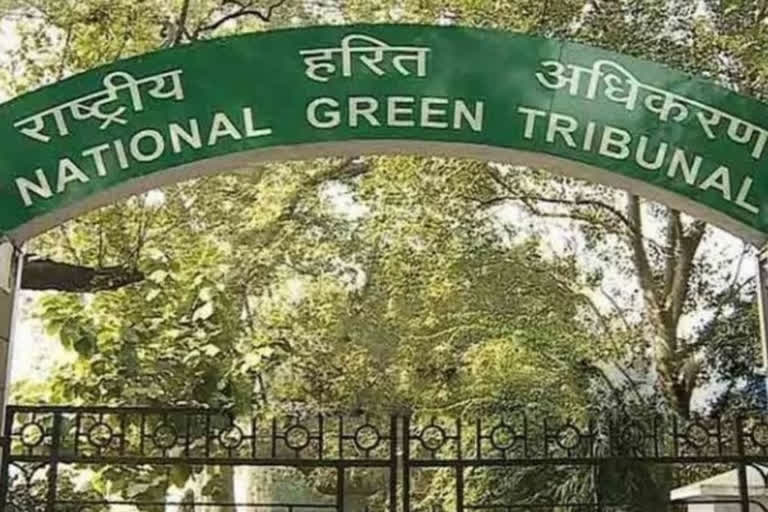New Delhi: There is a serious failure of Jharkhand in preventing the continued "environmental lawlessness", the National Green Tribunal observed while hearing petitions regarding alleged violations of environmental norms by quarrying and crushing units in the Rajmahal hills. The green panel also directed the chief secretary to personally monitor compliance as there was "much to be desired in remedial action against gross continuing violations in spite of categorical orders".
The tribunal was hearing petitions that claimed that stone-crushing and mining companies in the Rajmahal hills of Sahebganj district were indulging in indiscriminate mining without regard for environmental norms. The hills are blown up, huge dust is generated and air and water pollution is caused -- to the detriment of the environment and public health -- during the process, the petitions alleged.
A bench of Chairperson Justice AK Goel said despite several orders -- including prohibiting illegal mining and non-compliant stone crushing activities -- in the last five years, because of "collusion of the authorities in the state or their inaction, the situation continues to remain unsatisfactory".
The bench, also comprising Judicial Member Justice Sudhir Agarwal and Expert Member A Senthil Vel, said at the March 15 hearing -- during which it interacted with the additional chief secretary (environment) -- that it did not see "much improvement". "Question is whether such lawlessness can continue in a system governed by the Constitution and rule of law when the doctrine of public trust requires and the Constitution assigns inalienable responsibility to the state to protect the environment.
"We hope the situation improves but we regret to record the serious failure of the state of Jharkhand till now to prevent continuing environmental lawlessness," the bench said. The tribunal noted that, in pursuance to its August 2022 order, an earlier panel had submitted an action taken report in January and a supplementary report dated March 14.
Large-scale violations are continuing and action taken is inadequate and there is a failure of the state to discharge its obligation under the public trust doctrine to protect the environment, the state's resources and public health, the report stated. "Since we find much to be desired in remedial action against gross continuing violations in spite of categorical orders, we direct that henceforth, the chief secretary, Jharkhand, may personally monitor compliance at least once in a month and file his own affidavit about the measures taken and compliance status as on June 30 on or before July 15," the tribunal said.
Noting several violations in the compliance report, it said not taking stringent action in the face of "serious violations" was not justified. "Such rampant violations should have been and should now be controlled by higher authorities on an emergency basis," the tribunal said. No action is shown to be taken despite the green panel's categorical direction for action against officers responsible for permitting large-scale violations for extraneous reasons, the green panel added.
"It is not the case of the state that there was no violation or that no officer colluded in the process and thus, it may appear that the state is shielding the violators. If rule of law is to prevail, the enquiry may have to be held to identify such violators and to deal with them as per law," the tribunal said.
The green panel directed the deployment of adequate police in the area and the closure of the violating units, besides installing adequate ambient air quality systems and CCTV cameras to enable stringent monitoring. The amount of compensation already recovered from the violators can be utilised for remedial measures, including plantation (drives) and the project proponents have to abide by the consent conditions such as constructing necessary roads to prevent the generation of dust during transportation of the mined mineral, the tribunal said.
"We further direct that a sample survey of 10 per cent of the units (stone crusher and mining) on a random basis may be conducted by a joint committee of senior representatives of the Central Pollution Control Board, state pollution control board and district magistrate and report with regard to the status of compliance with reference to consent to operate conditions and in the light of supporting carrying capacity and data of air quality be furnished to this tribunal within three months," it said.
The report is also to be provided to the chief secretary to ensure adequate remedial action, the tribunal said. "The teams conducting sample survey may be provided adequate police protection by the superintendent of police, Sahibganj," the tribunal said adding, "(the) state PCB (pollution control board) will be the nodal agency for coordination and compliance". The matter has been posted for further proceedings on August 3. (PTI)



